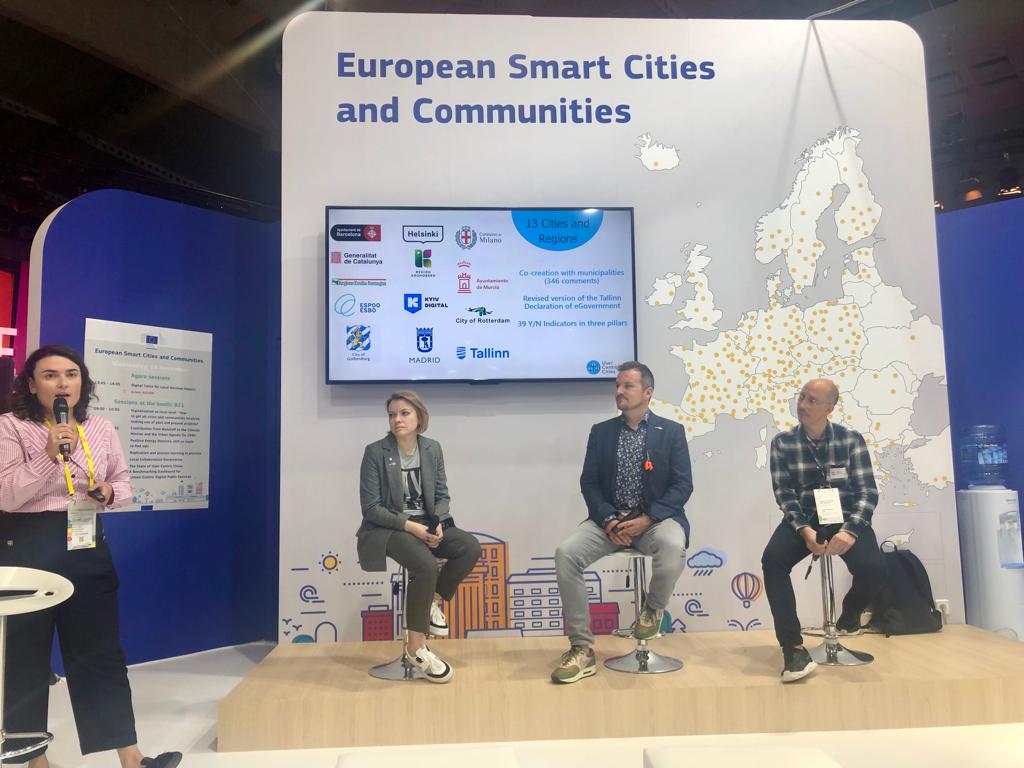
At the Smart City Expo World Congress, UserCentriCities convened the High-Level Roundtable on The State of UserCentriCities: A Benchmark for Citizen-Centric Digital Services in the European Commission’s Smart Cities and Communities booth. Victoria Itskovych, deputy chief information officer in Kyiv, Jochem Cooiman, digital innovation officer in Rotterdam and Kim Lantto, development lead of digital services in Gothenburg, discussed how the UserCentriCities Dashboard has helped their cities measure their performance and advance their digital services.
Based on a list of 39 curated indicators co-created with the project’s partners, the UserCentriCities unique benchmarking dashboard ranks the performance of European cities and regions in designing and delivering digital public services that focus on their citizens and their needs.
The first iteration of the dashboard fed the State of UserCentriCities report, an in-depth analysis of the state of citizen-centric digital public services in 13 leading cities and regions (Barcelona, Catalonia region, Emilia Romagna region, Espoo, Gothenburg, Helsinki, Kyiv, Kronoberg region, Madrid, Milan, Murcia, Rotterdam and Tallinn), launched in the margins of the 2022 European Week of Regions and Cities.
The dashboard is divided into three pillars:
- Enablers, including the sub-pillars skills, strategies and ecosystem;
- Performance, taking into account co-creation, supply and usability, security and privacy, redness, and adoption;
- and Outcomes with sub-pillars on the impacts on the reduction of administrative burden, citizen satisfaction and environmental impact.
The main findings from the first iteration show that local governments are more and more committed to providing user-centric services to their citizens. While all of the surveyed cities and regions have a digital strategy in place, they lack formal standards and adequate monitoring and enforcement tools. On the other hand, more progress needs to be made regarding co-creation and making it an integral part of the user-centric digital government. Finally, the report shows there is a lack of interest in measuring the outcomes of their service delivery and following up on their implementation. Even though cities and regions measure citizen satisfaction of their services, only five of them scored over 80%. On the other hand, the environmental impact is the least measured indicator, with a score of only 15%.
The UserCentriCities Dashboard is open to all cities and regions. If you are interested in taking part and submitting your data, don’t hesitate to contact chrysoula.mitta@lisboncouncil.net.